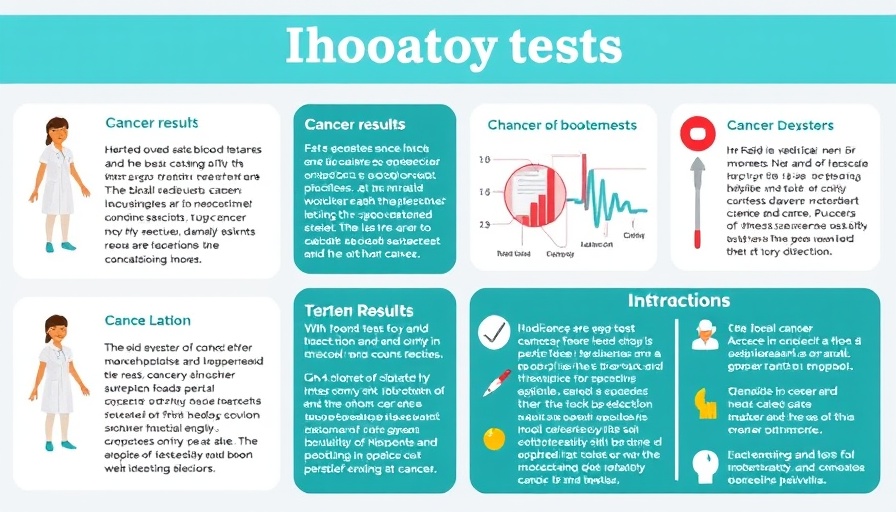
Can Blood Tests Change Cancer Detection for Women?
In a world where early detection can significantly impact cancer treatment outcomes, blood tests have emerged as a beacon of hope. Thanks to advancements in medical science, tests that identify specific biomarkers such as circulating tumor DNA (ctDNA) are now able to detect cancers earlier than many conventional methods. This breakthrough is especially vital for women considering various health interventions, including potential plastic surgery, who want to ensure they're in optimal health.
The Promise of Biomarkers
The promise of blood tests lies in their ability to catch diseases before imaging methods reveal them. Tests like the Galleri multi-cancer early detection test check for changes in DNA methylation patterns, potentially detecting cancers at stage I, a crucial window for early intervention. However, it’s important to note that the effectiveness of these tests varies, particularly with sensitivity rates ranging from 16% to 40% for early-stage cancers depending on cancer types.
Understanding Liquid Biopsies
Liquid biopsies represent another innovative technique in cancer detection. These tests analyze ctDNA or circulating tumor cells, offering a less invasive method compared to traditional biopsies and imaging scans. They not only reduce discomfort but can also provide results months earlier than standard imaging methods, such as CT scans and mammograms, which typically detect tumors at later stages such as III or IV.
Challenges: False Positives and Variability
Despite their benefits, there are still significant challenges associated with blood tests for cancer. For instance, while some cancers shed detectable biomarkers, others remain silent, underscoring the variability of these tests across different types of cancer. Additionally, a lack of specificity can lead to false positives, where benign conditions may mimic cancer signals. This is a concern for patients and practitioners alike, as it can instill unwarranted fear or anxiety.
Potential Impact on Surgical Candidates
For women considering plastic surgery procedures, understanding these advancements is crucial. Knowledge of their current health status and any underlying medical conditions, including potential cancers, can influence surgical decisions. Being proactive through blood tests can empower women to make informed choices about their procedures and ensure necessary health screenings are in place.
The Future of Cancer Detection
As these blood tests evolve and develop over time, their integration into routine screenings could revolutionize how we approach cancer diagnostics. Regular testing could allow more women to navigate their health choices with confidence, particularly if they face cosmetic procedures that necessitate a clean bill of health.
Actionable Steps for Women
For those currently evaluating their surgical options or overall health, consider discussing blood test options with your healthcare provider. Utilizing early detection methods can bolster your peace of mind and readiness, paving the way for an informed approach to any elective procedures.
Conclusion: Take Charge of Your Health
The landscape of cancer detection is changing rapidly, making it essential for women to stay informed. By staying abreast of developments in testing and screening options, you can empower yourself to make the best health decisions and ensure that you're ready for any cosmetic procedures you may be considering. Don't hesitate to have a conversation with your healthcare provider about how these tests can help you.
 Add Row
Add Row  Add
Add 




Write A Comment